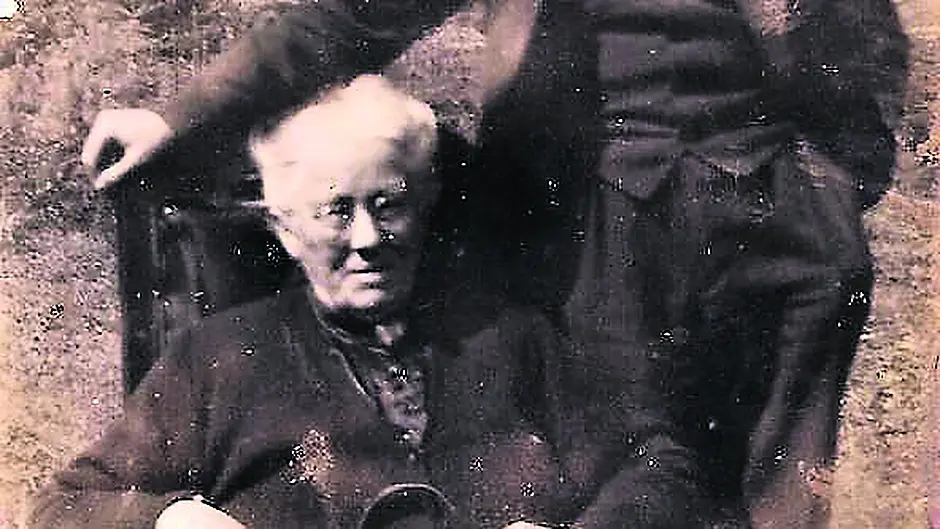BY CONOR POWER
CIVIL wars the world over leave behind them painful memories that entire societies try to forget.
Even in a small country like Ireland, where everyone knows one another to a certain extent, the great mass of people involved in our short but bitter Civil War have been largely forgotten.
 Linda Keohane's uncle Dennie, who inspired the book with his mother Judy.
Linda Keohane's uncle Dennie, who inspired the book with his mother Judy.
Linda Keohane’s intriguing and delicately drawn book on her journey to understand her uncle’s Civil War story is, one suspects, replicated a number of times around the country and many will find some echoes from their own family’s Civil War past in ‘My Uncle Dennie – and his Small Part in Ireland’s Civil War.’
Linda is an artist and genealogist who grew up in Clare, but her father came from the Mealagh Valley near Bantry. Her eloquent attempt in trying to understand who her uncle was, what he did and what drove him to doing what he did, charts a journey into the past to a place where stories and sometimes people, simply disappeared.
Essentially, she is trying to ascertain whether or not her uncle was a bad man.
All the evidence from her family points towards him having been a decent and good person.
And yet, there was this incident which seemed to suggest otherwise; one where a Civil War settling of scores was, seemingly, carried out by Linda’s uncle.
The victim of the incident was 17-year-old James ‘Benny’ McCarthy. He was a neighbour of Dennie Keohane and was an uncle of the late veteran Fine Gael TD PJ Sheehan. Before his death in August 2020, Deputy Sheehan represented the West Cork constituency for almost 25 years.
‘In one of the eulogies at his funeral, that killing was referenced,’ says Linda.
‘Deputy Sheehan’s younger brother was killed on Saint Patrick’s Day in 1923 and that was cited as having had a major influence on his life and on his politics.’
Linda’s high-quality prose and personal expression makes this a compelling read as she charts her voyage which, she realises early on, may not lead to any great revelation.
Death Certificates from the Civil War era are littered with dispassionate reports of young men who ‘died of gunshot wounds’ but whose real stories remain shrouded in mystery.
In her painstaking research, Linda trawls through archives from the period, tiptoeing through a culture of incomplete or late birth registrations, missing death certificates and facts that disappeared when those who remembered them passed away themselves.
‘There are a great many stories from the Civil War that remain untold,’ says Linda.
‘If Uncle Dennie had been killed, he would probably have a roadside monument erected in his honour.
‘Or if he had gone on to become a TD or the president such as Eamon De Valera did, then we’d know all about his life.
‘But, like so many others, he was none of the above. And yet he was involved.’
Is all this just dragging up something from the past that is better left behind or is it actually important to shine some light on this painful chapter of Irish history on hundred years on?
‘We live in times where we move around the globe so easily,’ says Linda, ‘and where we have a great mixing of cultures – us going there and people immigrating to Ireland.
‘And, unless you retain some sort of tight definition of what constitutes your own culture, it all becomes incredibly amorphous.
‘And that’s not good for anyone.
‘So I do think that it’s important, not only to have a national definition of what defines us, but also a localised definition of what defines us.’
• ‘My Uncle Dennie – and his Small Part in Ireland’s Civil War’ is available in bookshops locally.








